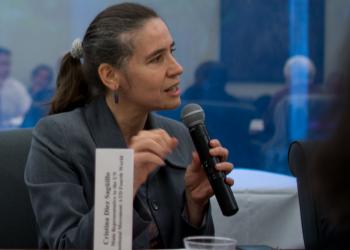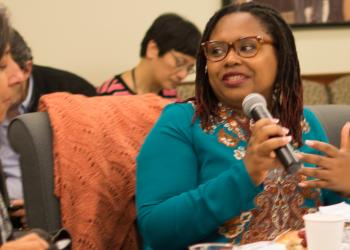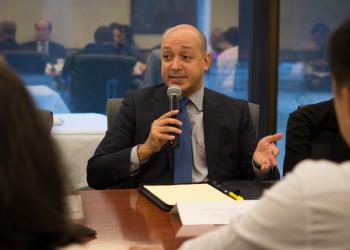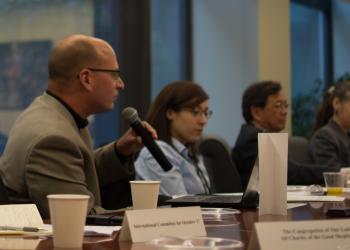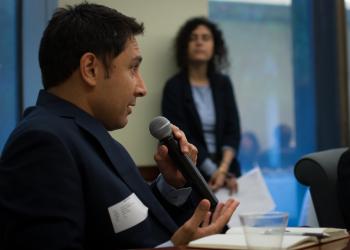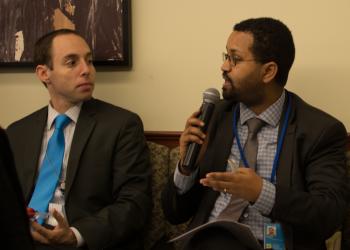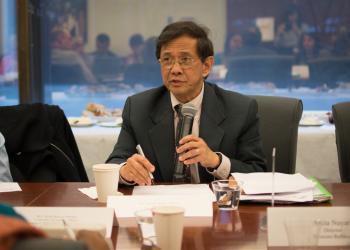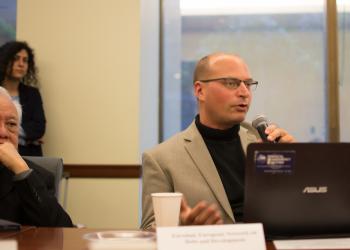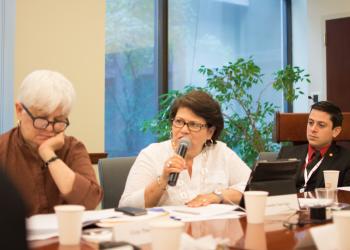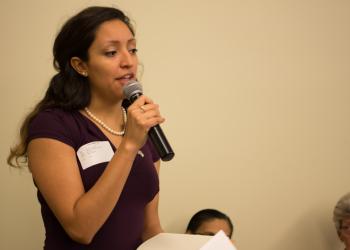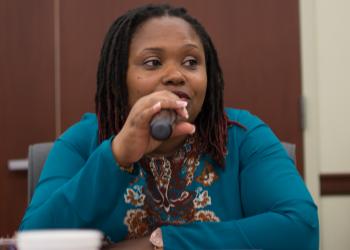Financing for Development and the 2030 Agenda
New York—25 May 2017—
Each year, the ECOSOC Forum on Financing for Development addresses issues pertaining to good governance, sustainable development, and poverty eradication. The forum represents a priority theme for developing countries. Dialogues pertaining to this sector are fundamental, and the implementation of the 2030 Agenda correlates to the objectives of the forum. To develop a broader understanding, a recent breakfast meeting at the offices of Baha’i International Community (BIC) aimed to assess those interlinkages between Financing for Development and the 2030 Agenda.
Held 25 May 2017 and organized by the BIC, International Movement ATD Fourth World, and Regions Refocus, the breakfast brought together diplomats, UN officials, and members of civil society. It was the 38th of a series of informal working breakfasts. Opening remarks were delivered by H.E. Mr. Hector Alejandro Palm Cerna; Permanent Mission of Honduras to the United Nations, Mrs. Nicole Barker Murphy, Counsellor; Permanent Mission of Jamaica to the United Nations, and Dr. Manuel “Butch” Montes, Senior Advisor; The South Centre.
In the interim between this year’s forum and 2018, the Interagency Task Force has been delegated to submit a report to the forum. One question that stands to be addressed is how we can progress beyond discussion, and how advancements can be made for those developing countries. The discussion that followed opening statements was vigorous, engaging all stakeholders. The role of the private sector was evaluated, as the dialogue weighed in favor of requesting responsibility to sector shareholders. The private sector was similarly evaluated. Emphasis was placed on restructuring beyond the current model, reconfiguring towards advancement of the agenda goals.
A further challenge that was noted pertained to the paradigm of competition. A traditional notion has maintained the standard that competition is a healthy approach to lifting people from poverty, but debate has ensued on accuracy here. A question that arose is how to better implement a paradigm of cooperation; private resources rely heavily on public resources. How can we develop towards these sectors better assisting one another?
The issue of investment in gender equality was also addressed. The women’s human rights agenda--though a focal point--needs stronger backing and commitment. It was advised that a session within the financial forum be developed specifically to women’s rights in terms of finance.
Where social protection floors are concerned, the consensus is that it should be a priority for both developed and developing countries. With the goal of eradicating poverty as the primary objective, there needs to be an established baseline of living.
The dichotomy between processes taking place at the UN as they involve national governments fails to take into account the development that occurs at the local level. This, in turn, should inform the processes in New York. It was further considered that Agenda 2030 generates unique principles of universality, complementarity, and interdisciplinary issues. Collectively, it was discerned that the agenda is not beyond means of achievement, but there needs to be a stronger will to enact change.
For more information, the notes from the program can be found here.
